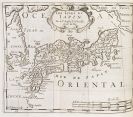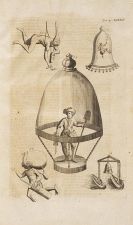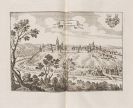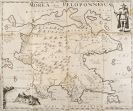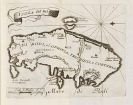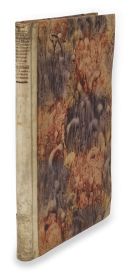
Fénelon
Schloss Fénelon
1651 -
Cambrai
1715
François Fénelon (specifically François de Salignac de la Motte-Fénelon; born August 6, 1651, Fénelon Castle in Périgord; died January 17, 1715 in Cambrai. François Fénelon studied at the elite seminary Saint-Sulpice in Paris and was ordained as a priest. In 1681, Fénelon published his pedagogical work "Traité de l'éducation des filles" ("Treatise on the Education of Girls"), which brought him much attention in France as well as abroad. At this time, he met Jacques Bénigne Bossuet, Bishop of Meaux, who soon became his patron.
Through Bossuet's influence, Fénelon was contracted to carry out the re-conversion of the Hugenots in the provinces of Saintonge and Poitou in 1686 and was appointed in 1689 as educator of the grandson and potential successor of Louis XIV, the Duc de Bourgogne. This position gave him much influence at the court; thanks to this, he was inducted into the Académie Française in 1693 and also named Archbishop of Cambrai in 1695.
For his princely pupil, Fénelon wrote several entertaining and educational works, including the extensive adventure, travel, and educational novel "Les Aventures de Télémaque, fils d'Ulysse" ("The Adventures of Telemachus, son of Ulysses"), which depicted the ideal of a wise king. When he was anonymously and incompletely published in 1699, without his knowledge, it created a royal furor and brought the disfavor of the king upon Fénelon. Louis XIV, who saw many criticisms of his absolutistic style of rule in "Télémaque," stopped the printing and banned Fénelon from court.
He then retreated to his bishopric in Cambrai, where he was still active as a theological and political author until his death. In Church history, Fénelon is known especially for his part in the Quietism debate with his earlier patron Bossuet. In 1697, he defended Madame du Guyon, the main representative of Quietistic mysticism, in his work "Explication des maximes des Saints sur la vie intérieure" ("Explanation of the Adages of the Saints on the Inner Life"), in which he gave the proof that her "heretical" teachings could also be seen in the recognized saints. For a decision in the Quietism debate, Fénelon called on the pope in 1697, who after long advisement, banned the "Explication" in 1699.
Fénelon complied with the pope's decision immediately and allowed the remaining copies of his book to be destroyed.
Would you like to sell a work by Fénelon?
Infos for seller

